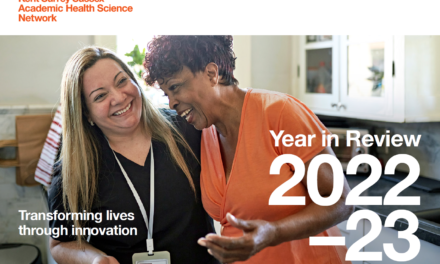Jenny Partridge, Industry and Technology Navigator, KSS AHSN, highlights some of the challenges facing General Practice and explains why she’s launched a “call to industry” to help find solutions that could help to reduce the pressure…
With a “call to industry” we’re essentially asking industry to help the NHS to solve a problem by co-designing a solution. In this case we’re talking about the pressure of the workload in primary care and the need to develop solutions that can help.
Ever increasing demand is not matched by growth in resources
Workload has increased enormously across the NHS but nowhere has it grown more than in General Practice where 90% of patient interactions take place. The growth in demand – which pre-existed the pandemic but has been exacerbated by COVID – has been happening at the same time as resources have been decreasing. So this is all about how can we help General Practice deal more efficiently and effectively with the demands that are placed on them.
A core issue is that GPs are often seen as the gatekeeper to the NHS and the one person for the public to go to for help, but actually there are a lot of other services that people can access. The trouble is they don’t always know about them or, for example, don’t think that a pharmacist is the right person to help them. This all contributes to GPs having a very high workload. There are lots of other services that could help the public with their healthcare needs, so in part it’s a question of signposting the public to those services and helping GPs to manage the amount of work that comes in every day.
But there’s much more to it than that
General Practice has a high administrative, unseen, workload which is also very important. For example test results; when a patient is sent for a test, there are a number of results that come back that need to be reviewed, processed, and a decision taken about whether further action is needed or not. This is the side that the public doesn’t see.
Our call to industry is about GP workload and particularly the administrative side; things that are done everyday and take a significant amount of time. For example, letters from hospitals or other healthcare providers that say a patient needs ongoing monitoring, or a change in medication or follow-up appointments, which then need processing and actioning.
We’re asking if some of this work could be automated
For instance, to what extent could dealing with blood test results be automated so that only those results outside the normal range have to be reviewed by a GP? Other results could be put through an algorithm, with appropriate safety netting, which says that no further action is needed. Already some of this work is being done by people other than GPs (such as other clinicians or trained administrators); it works well because they have clear rules to follow.
Arguably, this suggests that an automation process could also follow clear rules and reduce the amount of time practice staff have to spend on this work. Anything that’s borderline or unusual is taken to a GP for a decision.
In fact, some recent research suggests automation could impact 44% of all administrative work in general practice, enhancing both the quality of care and work satisfaction.
So what are we looking for?
We’d be delighted to hear from someone who has a solution that’s ready to go, but we don’t think anything like this exists yet. Saying that, this sort of tech is being used in other industries such as banking and potentially could be adapted. More realistically we’re looking for a company or developer that understands the healthcare market and who wants to work with us and primary care colleagues to co-design a solution. A number of GPs have expressed their interest in exploring automation by working with industry because they believe it will make a significant difference to their workload.
Although there is currently no funding for this project, there is the potential to explore suitable opportunities once we have found an industry partner. The healthcare market is a complex landscape and so we hope to work with someone who understands some of the complexities such as information governance standards and IT system inter-operability.
Interested to find out more?
We’re keen to get going on this because we believe it could have significant impact on workload and help the health service at a time of need.
If you’ve got any questions please get in touch with me for a discussion or complete our Expression of Interest form and we’ll get back to you.
The original deadline for this piece of work was 10th January 2022 but as there is considerable interest in this area from both GP practices and providers, we are keeping this call to industry open until 31st March 2022 to explore further opportunities.
Additional information
This is the research that might be useful in relation to this innovation call:
The future of healthcare: computerisation, automation and general practice services
Dr. Matthew Willis, Dr. Paul Duckworth, Logan Graham, Prof. Michael Osborne, Prof. Eric T. Meyer, D
Oxford University & Oxford Internet Institute, 2020.





